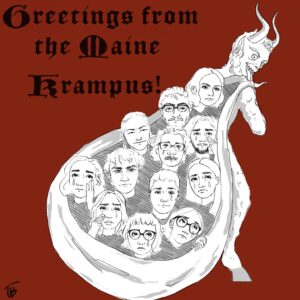I watched “2001: A Space Odyssey” by Stanley Kubrick when I was 16. This film and others like it have left a profound impression on the person I am. Through movies such as these, I gained skills in analyzing and understanding human behavior. Likewise, the film’s content had a significant impact on our society at large. Kubrick gives insight into human nature that resonates with the directors of today.
Film is a crucial component of our society and is exemplified through paintings of the past as a quasi-prototype of what was to come later on. Kubrick’s The Shining is most notable as an insight into humanity. We see a high school English teacher, Jack Torrance, whittled down by loneliness after becoming a caretaker for a hotel that is closed for the winter. His family goes through a great deal as Torrance takes out his cabin fever by attempting to murder his wife and son. Here, the son is most notable as being omnipresent, seeing visions of the killing happening. However, the only one killed was Jack as he became engulfed by maniacal rage and supernatural forces.
Interestingly, the last scene of Jack Torrence shows him amongst a crowd from the 1920s at the hotel. Despite having the urge to kill, he found acceptance amongst a group. One of the members, Grady, is the former caretaker of the hotel. It illustrates that humanity is put on display in times of loneliness, as when one is in a position of authority. When the mind is put under stress, as Kubrick illustrates, people will act out, whether it be to kill, find a way to flee, as with the wife and son or the owner attempting to be a knight in shining armor coming to battle and ultimately being killed.
The style of filming is another key aspect in conveying themes and messages. “2001: A Space Odyssey” is a great example of this. It uses the three-act drama, or setup, confrontation and resolution. Kubrick conveyed a message of utilizing tools to forge together a society in the stars. Humanity as a species goes above and beyond, literally and figuratively, towards a better horizon. Therefore, the natural state is expanded to include not just the planet but the stars as well, as humanity was just one year away from landing on the moon. Kubrick is able to make a point clearly by dismantling the conventional notions within film to establish a new standard.
Finally, the other influential film Kubrick is known for is “Dr. Strangelove.” Despite being a comedy released two years after the Cuban missile crisis, the film offers a more interesting perspective. The main character, Dr. Strangelove, is a top German scientist and high-ranking Nazi recruited by the U.S. after World War II in what was known as Operation Paperclip. Towards the end of the movie, we see Dr. Strangelove, who is presumed paralyzed in the film, ends up standing, declaring, “Mein Führer, I can walk!”. The quote has a deeper meaning, as it is Kubrick signifying a return to Nazism. People will ultimately be pushed to bad places in times of crisis. Kubrick exemplifies this through comedy as he shows the art of contradiction while the worst aspects of humanity are shown.
Kubrick showcases humanity in a creative way using his films. He illustrates what happens when humanity is pushed, and how they act out in a manner not seen normally. A main message of his is that people may not have the best intentions in mind but still strive for the best outcome even when crises in life blur their thoughts.









